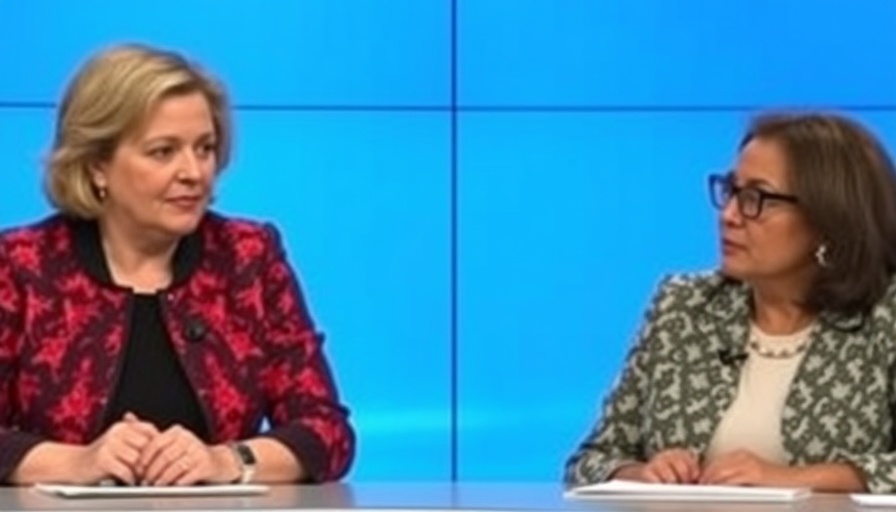
Understanding the Political Landscape: A Critical Standoff
The ongoing budget standoff amidst South African politics has intensified scrutiny around the alliances and commitments of prominent parties, particularly as the Democratic Alliance (DA) continues to stake its claim as the voice of the people against an embattled ANC leadership. Following a key meeting with ANC leadership, DA leader Helen Zille was quick to reaffirm the party's commitment to serve the best interests of citizens, even amidst rising challenges characterized by inflation and declining public trust towards the government.
The Weight of Economic Recovery on Political Promises
The backdrop of this political engagement is a nation grappling with economic recovery post-COVID-19, where citizens crave tangible actions over mere rhetoric. As the DA positions itself for potential gains in the upcoming national elections, the populace becomes increasingly aware of how governmental policies will affect crucial issues like unemployment rates, healthcare system reforms, and service delivery protests. Zille's pledge comes at a time where citizens are watching closely, especially in a climate where the effectiveness of the ANC is being called into question amid crises surrounding Eskom and load shedding.
A Divided Opposition: DA and EFF's Divergent Paths
While the DA promotes itself as a responsible alternative, the Economic Freedom Fighters (EFF) are concurrently embracing radical proposals that resonate with the frustrations of disenfranchised citizens. This divided approach to opposition politics raises questions about the potential effectiveness of current policies aimed at land reform and addressing systemic inequalities. As new societal dynamics come into play, Zille's strategic positioning and the DA's efforts to appeal to voters seeking stability may prove essential.
The People’s Voice: The Importance of Accountability
In a democracy, the voices of the people are paramount. The DA's commitment to prioritizing public interests—echoed by Zille—is a call to ensure that the government remains accountable amidst ongoing corruption investigations and state capture narratives. Enhancing transparency in governance remains crucial, as trust in political institutions has diminished. This political atmosphere drives service delivery protests, yet the DA's insistence on accountability may bolster its standing leading into the municipal elections.
Future Predictions: Navigating A Complex Political Terrain
As we look toward future elections, it is pivotal to consider how economic pressures and public sentiment will shape political engagement. The DA, now with an invigorated focus on responsive governance, could provide an appealing choice for voters fatigued by corruption scandals. Conversely, the ANC's ongoing struggles with internal cohesion and managing crises may lead to further erosion of its political capital. The interplay between these parties as they jockey for power holds critical implications for policy directions that will impact climate change initiatives, economic recovery efforts, and societal inequalities.
Understanding the Stakes: What This Means for Citizens
The current budget standoff epitomizes broader challenges inherent in South African governance—affecting everything from social grants to healthcare accessibility. Citizens must remain engaged, understanding their rights to demand accountability and effective leadership from their elected officials. As the political scene mutates in response to socio-economic pressures, awareness, and involvement in democratic processes become crucial for reshaping the future landscape.
In this dynamic environment, voters must stay informed about party commitments and performance. As accountability becomes a focal point, your engagement can influence the direction of governance that directly affects your life and community. It’s essential to observe how the DA’s promises materialize and to hold leaders accountable as the nation navigates through testing times.
 Add Row
Add Row  Add
Add 




Write A Comment